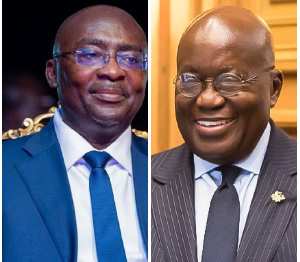
The Akufo-Addo/Bawumia administration is making audacious claims about its economic performance as Ghana's political debate heats up, especially when compared to the National Democratic Congress (NDC) government under John Mahama. The administration claims that they have outperformed their predecessors in 10 of 13 important economic categories, citing notable gains in important macroeconomic metrics like GDP growth, inflation, and public debt management.
The NPP emphasizes that despite the global disruptions brought on by the COVID-19 epidemic, GDP growth during the current government has surpassed projections. Ghana's GDP growth rate was only 3.9% in 2016, the year Mahama stepped down from office.However, despite difficult global economic conditions, the NPP government claims that it has been able to generate higher and more consistent growth.This assertion of greater performance is supported by additional metrics, such as increased revenue creation and fiscal restraint.The NDC is still dubious of these claims and is anticipated to refute the NPP's story.Economic performance is anticipated to continue to be a major point of contention for both parties as Ghana gets closer to election season.The NDC has previously voiced concerns about unemployment, the quality of public services, and the growing cost of living, contending that the Akufo-Addo/Bawumia administration has not
Inflation rates have been one of the most contentious areas of the economy's performance. Critics contend that despite the NPP government's claims to have controlled inflation, the cost of living has increased, making it difficult for many Ghanaians to make ends meet.It is anticipated that the NDC will use these worries to mobilize voters by highlighting the discrepancies between macroeconomic data and the realities that residents encounter on a daily basis.The economy will probably continue to be a major concern in the months ahead as the elections draw near.Ghanaians will have to choose which vision they feel best captures the nation's future economic possibilities as both sides will continue to use economic facts to bolster their claims.This conflict over economic success is more than just a numerical one; it is a turning point in Ghana's political history.